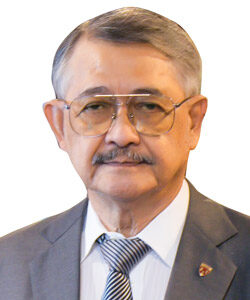A close look at the emerging trends in litigation and alternative dispute resolution around Asia
In this age of disruptive technologies, where artificial intelligence is displacing many conventional human roles as well as the manner in which international trade and other business transactions are conducted, the method of resolving commercial disputes must also adapt to these changes. The traditional way of litigating commercial disputes in courts may still remain the primary way of resolving them, but sooner or later the court will become forum non conveniens to try these disputes. With their flexibility to quickly adapt to changes, mediation and arbitration are gaining popularity in filling this void left by the court.
It is more compelling to resolve disputes via mediation in which the parties reach a mutual agreement even though they come away with less than what they expected. If mediation does not succeed, arbitration is the other alternative. A distinct advantage of arbitration over litigation is that the parties can appoint neutrals to settle their dispute. What is more, they have the flexibility of choosing the rules to govern their arbitration proceedings instead of submitting themselves to the rigid rules of court procedure.
Overview of arbitration law
The current law on arbitration is the Arbitration Act, 2002 (AA), which mostly follows the UNCITRAL Model Law on International Commercial Arbitration. Pursuant to the adoption of AA, Thai courts will enforce foreign arbitral awards to the extent of Thailand’s commitment under international agreements.

Managing partner at ILCT-Thailand in Bangkok
Tel: +66 0 2679 6005
Email: jayavadhb@ilct.co.th
Thailand became a member of the Convention on the Recognition and Enforcement of Foreign Arbitral Awards, 1958 ( the New York convention), without any reservations. The New York convention enables (through AA) foreign arbitral awards to be enforced in Thailand and for arbitral awards issued in Thailand to be enforced in 164 member states (as of June 2020), subject to the reservations made by those states.
The ability to enforce arbitral awards issued in Thailand among the member states of the New York convention provides a marked advantage of arbitration over litigation in Thailand, because a Thai court judgment is not enforceable as a matter of right outside Thailand, as there is no treaty or international agreement to enable it to be done.
Therefore, it is up to the courts in the countries where the Thai court judgments are sought to be enforced, and whether to enforce them on the basis of reciprocity, comity or otherwise. For the same reason, it is not possible to enforce a foreign court judgment in Thailand. In practice, a foreign court judgment can be submitted as evidence of the claim, which must be litigated de novo (from the beginning).
Unlike the old Arbitration Act of 1987, the AA does not make any distinction between domestic and international arbitration. Arbitrability under the old act was limited to civil disputes, whereas the AA does not contain such limitations, but covers all disputes whether or not arising from contractual relations. The AA also covers all disputes arising from contracts between the state and private parties.
Unfortunately, the administrative branch of the government discourages the insertion of arbitration clauses in state contracts, requiring government agencies and state enterprises to request permission from the council of ministers before doing so. The reason behind this is that government agencies and state enterprises have lost many arbitration cases against private parties resulting in substantial awards against them.
Thailand has also concluded investment treaties with many countries, both on bilateral and multilateral bases. Many of the treaties contain arbitration clauses whereby the private investors or host states can institute arbitration proceedings to resolve their disputes under the respective treaties.
Facilitating regulations
In order to promote Thailand as a venue for international arbitration, visa and work permit laws have been relaxed to facilitate foreign arbitrators and those acting as party representatives in arbitration proceedings in Thailand.
“Smart visas” and special work permits are generally granted to foreign arbitrators to enable them to carry out their duties until the closure of the proceedings. Foreign lawyers, who are normally prohibited from practising in Thailand, are permitted to receive a special dispensation from the law to act as representatives of a party in arbitration proceedings.
Local arbitration institutions
There are three main arbitration institutions in Thailand:
(1) The Office of the Arbitration Tribunal of The Board of Trade of Thailand;
(2) The Thai Arbitration Institute of the Office of the Judiciary (TAI), and;
(3) The Thai Arbitration Centre (THAC) under the auspices of the Ministry
of Justice.
The arbitration centre operated by The Board of Trade of Thailand (a federation of Thai and foreign chambers of commerce in Thailand) is by far the oldest institution. It is also where the office of the ICC Thailand is situated. The Board of Trade of Thailand has been administering the Thai Commercial Arbitration Rules since the 1960s. The centre is supported by the Board of Trade of Thailand and detached from governmental agencies.
Established in 1990, TAI is a successful attempt by the judiciary to promote alternative dispute resolution in the country. TAI has the highest number of ongoing arbitration proceedings. Although the institute is a part of the Office of the Judiciary, which is the administrative arm of the courts, and is overseen by it, neither the office nor the courts interfere with the deliberations or decisions of the arbitrators. TAI is the main forum where disputes arising from contracts between the state and private parties are arbitrated.
Not to be confused with TAI, THAC was established by an act of parliament in 2007, but started operation in 2015. THAC has been in the forefront of promoting arbitration in general and in presenting itself as an international arbitration centre.
It has modern facilities and is conveniently situated in a buzzling part of Bangkok, within minutes of famous hotels and shopping centres. Although THAC is partly funded by the Ministry of Justice, the latter does not interfere with the arbitration proceedings under the centre’s rules. THAC’s connection with the Ministry of Justice provides it with the unique opportunity to initiate changes in laws and regulations to make Thailand a more friendly place for arbitration.
Other arbitration centres
Apart from the three main arbitration centres there are four other centres that administer their own arbitration rules relating to specific areas or industries. These include:
The Arbitration Centre of the Office of the Insurance Commissioner. The Centre administers its arbitration rules to resolve disputes between the beneficiaries and the insurance companies.
The Arbitration Centre of the Office of the Securities Commission. The centre administers its arbitration rules to resolve disputes between capital market investors and securities companies.
Office for the Prevention and Resolution of Disputes regarding Intellectual Property. As its name suggests, this centre is attached to the department of intellectual property and administers its arbitration rules to resolve disputes regarding intellectual property matters (trademark, patent and copyright, etc.), as well as disputes arising from licensing and other agreements relating to intellectual property.
The Arbitration Centre of the Thai General Insurance Association. The centre administers its arbitration rules to resolve disputes arising from among its members.
Final thoughts
For a long time, arbitration has been promoted as an alternative way of dispute resolution, its increasing popularity is mainly attributable to its flexible nature, which enables it to keep pace with the rapidly changing business landscape.
Thailand is a long-standing member of the New York Convention, thereby allowing foreign arbitral awards to be recognized and enforced within its territory. Conversely, awards made in Thailand can be enforced in 164 member states across the world, subject to the reservations made by those states. The Thai arbitration law follows the UNCITRAL Model Law in the most part, further strengthening Thailand as an international arbitration forum. Further efforts have also been made to relax certain laws and regulations to facilitate the participation of foreign arbitrators and counsel to in Thai arbitration proceedings.
Presently, there are a number of arbitration institutions in Thailand which can cater to the needs of the parties seeking to resolve their disputes. Thailand has been a long-recognized venue for ICC and ad hoc arbitration under the UNCITRAL Rules. It is now asserting itself to become the hub of international arbitration.

International Legal Counsellors Thailand Ltd. (ILCT)
18th Floor, Sathorn City Tower
175 South Sathorn Road, Tungmahamek,
Sathorn, Bangkok 10120, Thailand
Tel: +66 (0) 2679 6005
Email: law@ilct.co.th
www.ilct.co.th




























